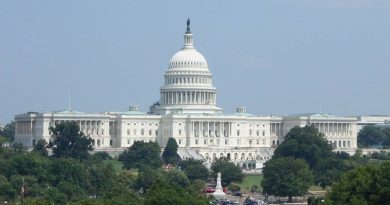Banks Face Complex Legal Issues When Dealing with Marijuana Industry
Thanks to a legal landscape that is very different depending on where you are in the country, financial institutions that want to serve the cannabis industry face serious roadblocks.
A recent court case in Colorado, where cannabis is legal for both medicinal and recreational use, illustrates the current problems.
In 2015, Fourth Corner Credit Union sought to establish an account with the Federal Reserve Bank of Kansas City. Although the credit union had been granted a state charter in Colorado, the Federal Reserve rejected its application.
In January of this year, U.S. District Judge R. Brooke Jackson upheld that decision. The reason? Fourth Corner intends to do business with those in the marijuana industry. Jackson ruled that allowing the credit union access to federal funds would allow criminal activity, since marijuana is still illegal under federal law.
Fourth Corner has appealed the case to the 10th U.S. Circuit Court of Appeals.
The Complex Legal Landscape Around Banks
In four states – Colorado, Washington, Oregon and Alaska – voters have approved the sale of marijuana for both medicinal and recreational use. In all, 35 states have approved cannabis sales and use for medicinal purposes or have decriminalized marijuana.
But federal law remains unchanged and marijuana is illegal under the Controlled Substance Act. This makes loaning to marijuana businesses difficult for large banks that operate across state lines.
This has forced the legal marijuana industry to operate much like the old, illegal one did – in cash.
This had led to situations like the one in Oregon, where the state Department of Revenue had to renovate an old building into a high-security operation with bullet-proof glass because bags full of money are coming in for tax payments. They also had to hire staff to count all the cash before it’s bundled and taken by armored car to the bank.
Becoming Easier in Some Areas
According to the Associated Press, more small, state banks and credit unions are becoming willing to do business with the marijuana industry. This had led to more electronic filing of taxes in Washington state, which takes in about $4 million in tax revenue every month from marijuana sales.
That said, there are concerns over what will happen if California voters approve marijuana for recreational use in November. Some estimates place the amount of revenue for the state at about $1 billion per year if voters approve the measure.
Easing federal restrictions against banks for dealing with the marijuana business could help alleviate the problem for all states where marijuana sales are legal.
Some Recent Rulings Around Banks
There have been some victories, or at least partial victories, in recent court cases that have given marijuana supporters hope that further changes might be on the horizon. The Denver Post listed this victories, which include:
- In February 2016, a Colorado District Judge ruled partly in favor of a marijuana business that was seeking insurance for plants damaged in a fire.
- In March 2016, the U.S. Supreme Court decided not to hear a lawsuit filed by Nebraska and Oklahoma that challenged Colorado’s legalization of marijuana.
- In April 2016, the 9th U.S. Circuit Court of Appeals threw out a Justice Department case barring operations at the Marin Alliance for Medical Marijuana in California.
When you boil it down, the basic questions in all of these cases are: Do businesses in the marijuana industry have the same rights and protections as other businesses? And where do the courts draw the line between state and federal law? As the above court cases show, the judicial system is beginning to grapple with these issues, but it may be some time before we get all the answers.




